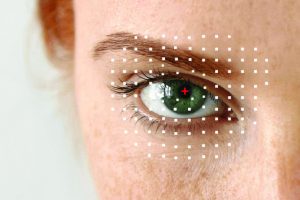One of the best ways to protect yourself from catching a virus is to frequently disinfect your hands.
Washing your hands with warm water and soap for 30 seconds can help stop the spread of viruses.
However, soap and water is not always available, especially in the places where you need them most (think: subway stations, stores, cabs, and even the local park). We are constantly touching things and spreading germs from contaminated surfaces.
Did you know that touching your face, specifically your eyes, nose, and mouth without washing your hands first is the number one way to catch a virus?
Well, thank goodness, there is one solution that can help to rectify this problem. Small bottles of alcohol-based hand sanitizer have become widely popular, especially these days when COVID-19 threatens us at every corner.
Doctors recommend walking around with a hand sanitizer with an alcohol concentration of between 60-95%, in your pocket, purse, backpack or briefcase so that it is easily accessible when you need it most.
The alcohol in the hand sanitizer can help to kill germs and protect you when soap and water is not available.
However, it is crucial to understand how to use hand sanitizer appropriately and make sure your children know how to use it as well.
In recent months, there has been an increase in reports of eye emergencies associated with hand sanitizer, specifically alcohol-based hand sanitizer accidentally getting squirt or rubbed into the eyes.
This can be quite dangerous if not handled correctly, and even lead to vision loss.
If an alcohol-based hand sanitizer gets into your eye, you will feel stinging and burning upon contact. While your first instinct may be to rub your eyes, try to avoid this at all costs, as this can actually make the problem worse.
If the cornea (the clear front covering of your eye) or the conjunctiva (the mucous membrane that covers the white part of your eye) becomes damaged by the alcohol, you may experience severe pain and/or light sensitivity.
If you are concerned you or your child requires emergency eye care, immediately contact an eye doctor near you.
SEE RELATED: When is Blurred Vision a Medical Emergency?
Signs to look out for
- Burning
- Stinging
- Redness
- Eye pain
- Blurred vision
- Light sensitivity
- Vision loss
If hand sanitizer got in your eye, contact an eye doctor near you.
What should you do?
Wash your eye thoroughly with warm water for at least 10 minutes. Some eye doctors recommend placing your head under a gentle stream of running water in your bathroom or kitchen sink, so the water can run continuously into your eye and just as easily drain out.
While you are doing so, be sure to keep your other eye tightly closed to avoid contaminated water from seeping into your unaffected eye.
LEARN MORE: Guide to Eye Exams
If your eyes continue to feel a burning or stinging sensation or experience any vision changes or vision loss, contact an eye doctor immediately, as this is considered an eye emergency and must be treated promptly.

